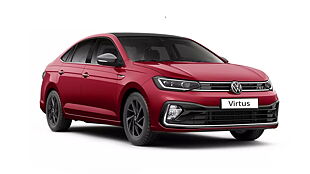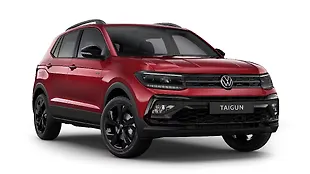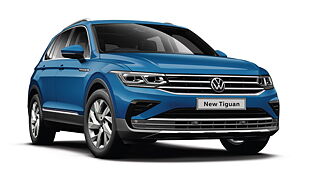Overview

Those looking for an upmarket mid-sized sedan have so far lapped up the City. But now with the Vento entering the fray, can the Honda still hold its own? AUTO BILD INDIA fi nds out…
So far the Honda City has had a great run. And it has managed it mainly on account of its virtues. But, there’s also no denying that its competition was found wanting; some weren’t spacious, others lacked performance and fuel economy, while still others weren’t new enough to compete. But most of all, none of the cars in the City's segment sported a badge Battle of the s nob sedans that was premium enough to compete with Honda.
Not anymore, though. Say hello to the Vento. And like we reported in our issue before last, it’s spacious, well built and has a decently potent engine. It’s also new and carries an equally snobbish badge, that of Volkswagen.
So then, can the City still fend off budding competition, especially when the Vento seems pretty competent on paper and has a big price advantage as well? We decided to fi nd out. And to do that we have the top-of-theline Vento Highline and the top but one, City S versions, which best compete on price against each other.
Exterior & Interior

Honda upgraded the quality of plastics some time ago but the City's interiors still don't feel as rich as that of its competitor here

While the City's rear end didn't look all that exciting when it was launched, the Vento's staid and uninspiring design makes it look all the more better now
On the looks front, the City remains the car to beat. Now, the VW designers deserve a big pat on their backs for making the Vento look like it does. It looks inherently like a sedan than a hatch sporting an add-on boot. It has pleasing lines, good proportions and of course an attractive front end. But, it still doesn’t command as much attention as does the City.
Inside too, the City, with its play of black, beige and silver colours along with bold and fl owing design lines that carry from the dash to the doors, feels more inviting. It also feels more spacious up front, thanks to the relatively low and long dashboard.
The Vento’s high dash conceals its roomier front. But, it certainly exudes better quality, does the VW. The plastics in particular look and feel more upmarket. The operability including ergonomics is better on the Vento as well. It also has comfy seats that support you well, be it for the back, thigh or even the sides. And that holds true even for the rear.
But, that’s only till you haven’t rested your behind inside the City. Because once you do, it’s immediately clear that even though the Vento has comfy seats, the City’s are better, both front and rear. These are larger, better contoured and prove less tiring over longer jaunts. It’s certainly the better car to be chauffeured around in, even though it doesn’tget the convenience of adjusting the front passenger seat from the rear like on the Vento.

Cabin of the Vento is reminiscent of VW's Polo. It is made of good quality materials and feels plush. Two-tone trim adds a dash of cheeriness

Dynamically, the Vento is ahead of the City; it has a fi rmer chassis and a more feedback rich steering
The Vento though makes a better case for itself for those who like driving. To begin with, its steering wheel is adjustable for both reach and rake (the City only gets rake adjustment), and along with height adjustment for the driver’s seat it’s easy to get both comfortable and cosy behind the Vento’s wheel. The steering itself feels better than the City’s. It’s still light but it feels less artifi cially weighed than the Honda's and is more linear in its operation as well.
Then of course, it handles better. Now both cars roll quite a bit when thrown hard into bends, but the Vento thanks to higher grip levels, has a better turn in. It also responds to steering inputs with more alacrity than the Honda. And the best bit is, even though it feels tighter and more predictable than the Honda, it doesn’t lose out on the ride quality front either. In fact, it rides better than the City. It’s the best of both worlds really.
The City’s ride isn’t jarring either but when going over broken surfaces or smallish potholes, but the Honda bobs around a bit and the ride can get noisy too. Passengers can also feel nearly every bump or irregularity the City goes over. The Vento on the other hand smoothens nearly everything at slower speeds and it’s only at higher speeds over pronounced undulations that it tends to wallow and roll a bit. Having said that, deep potholes can still get the better of the car.
Engine & Gearbox

Honda City Engine is not only a peppier performer but is also more fuel effi cient
When it comes to the drivetrains though, the Honda has a slight edge. The engine is more refi ned and even though it’s a bit down on capacity, it delivers more power and helps the City post quicker acceleration times. And with well sorted gear ratios, driveability too, is a notch above the Vento's. So is the fuel effi ciency, though there’s only about a kmpl separating the two.

Volkswagen Vento Engine is decently torquey
The Vento’s 1.6-litre engine meanwhile is essentially the Polo’s 1.2-litre unit with an added cylinder. Not surprisingly then, the Vento too fi res up as if it were a diesel. On the move, it is quieter nonetheless, and if not revved hard, is acceptably refi ned too. But, the highlight of the Vento is its gearbox’s smooth and precise shifts. And along with the light clutch, it makes for an easy to drive car, particularly in the confi nes of the city.
Dimensions
Honda City (mm) |
|
Volkswagen Vento (mm) |
|
Scorecard & Verdict
Scorecard
Body: Both cars are equally matched on space. While the Vento has more of it in the front, the City has more at the back. The Honda though has a bigger boot. Both cars are high on quality too, but the VW feels a lot plusher. Though the City was upgraded last year with better plastics in the cabin it still can't match the Vento. Both have similar safety equipment though.
Drive: Under this head it is the Honda that outdoes the VW. Not only does the City offer better acceleration in a straight drag, it also offers better driveability. Over and above that it offers better fuel effi ciency than the Vento, while displaying better engine characteristics as well. The only count under this head where the Vento comes out on top is its better gearbox.
Comfort: The City is softly sprung while the Vento rides a little fi rmer. Slow speed ride is better on the Honda but overall the VW does a better job of cushioning passengers. The City's suspension is noisier too. The Vento is also the better equipped with climate control and a rear AC vent. Operability of switches is also better on the VW.
Dynamics: The Vento outperforms the City on all counts, thereby winning the dynamics head by a wide margin. The Vento's steering offers better feedback, it brakes quicker and is more manoeuvrable. While the City's lighter steering is good in urban confi nes, on the highway the VW feels better. The latter also feels more planted.
Cost: Both cars cost almost the same and you will get a better resale for the Honda. The four-year warranty on the Japanese car too is better than what Volkswagen is offering on its Vento. Naturally the Honda wins the cost war. But overall, the Vento still makes a better case for itself.
Verdict
The City has been beaten by the Vento even though the Honda still remains the car to buy if the balance in performance and fuel effi ciency, not to mention better warranty and resale, still dictate your buying decision. But, for every other reason like dynamics, which includes steering response, braking and directional stability as well as comfort, be it better ride or more comfort equipment, the Vento makes a better case for itself. And honestly, it isn’t far behind in performance and effi ciency or resale and warranty either for that matter.

![Volkswagen Vento [2012-2014] Image Volkswagen Vento [2012-2014] Image](https://imgd.aeplcdn.com/272x153/cw/cars/discontinued/volkswagen/vento-2012-2014.jpg?q=80)
























